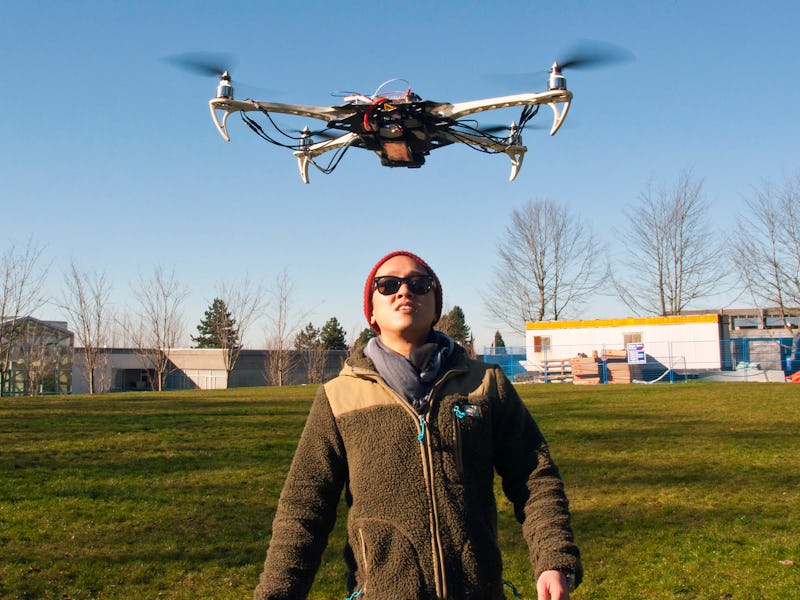What's Behind the FAA's Upcoming Drone Registration Announcement?
If your quadcopter weighs the same as a hamster, you might have to tag it with a registration number.

Do you know how much your drone weighs?
On Saturday, the Federal Aviation Administration announced that a special task force formed to set up the rules of registering drones had submitted its recommendations. The FAA was heavy on gratitude but, perhaps unsurprisingly, light on substance:
Statement from FAA Administrator Michael Huerta on UAS Registration Task Force Report:
“I will work with my team at the FAA to review their recommendations, as well as public comments we received, as we present the recommendations to Secretary Foxx. We will work quickly and flexibly to move toward the next steps for registration.”
What we’ve got now is this buzz of rumor: As soon as December, drone operators might have to create an online account to register any drones they own over 250 grams, according to sources who spoke to the Associated Press on conditions of anonymity. That’s slightly more than half a pound.
If true, a weight threshold of 250 grams will mean that certain “toy”-type drones would fall within the bounds of registration. Sources told the Associated Press this limit was chosen because a drone of this size or greater could potentially harm a person or aircraft. What’s up for debate is not that the improperly or illegally flown drone can do damage, but how severe that damage would be.
Weight alone isn’t a perfect measure of the destructive potential for a drone. More nuanced approaches to delineate purely recreational devices from those requiring more oversight is autonomous capability — particularly drones that can fly beyond line-of-sight, such as programmable quadcopters or those controlled by first-person views.
To keep track of who’s flying what drone, the current consensus is that the FAA will create an online registry tying an operator to a phone number and address. The owner will be assigned one registration number to mark all of his or her drones, regardless of whether the drones were custom-built, bought from someone else, or purchased before the registry goes into effect. What seems likely — at least to task force member Bob Young, PrecisionHawk CEO — is that the system will be in place by Christmas, as he told The Guardian.
It was widely expected that the FAA would make some sort of announcement regarding the task force Friday. If the fact that the administration is playing cards close to its vest underscores anything, it’s that regulating the future is tough. What the FAA will hopefully recognize, too, is that it’s also a process which will have to keep evolving, long after everyone buys their holiday drones.